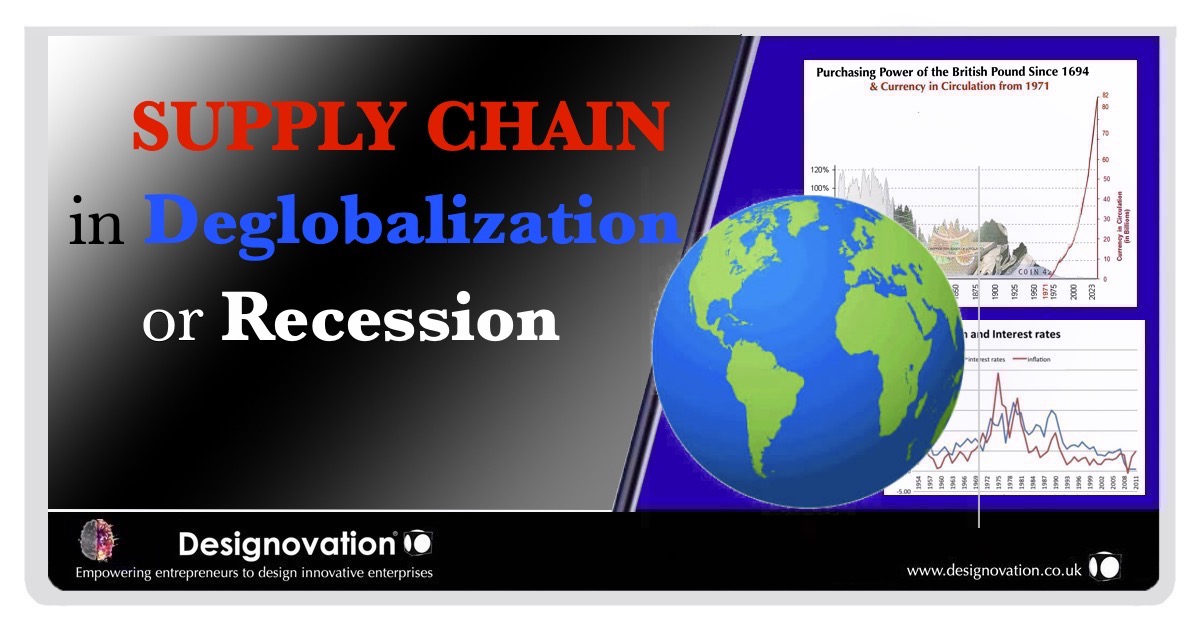As an observer and student of a wide range of financial journalists and economist over the past few years the speculation and beating of the drum of a Recession or even a Depression is ever louder. Combine this with further de-globalisation due to international conflicts impacting supply chains combined with an economic downturn due to high levels of inflation internationally, business owners have a variety of risks to consider.
During the lock downs one of the key issues to face companies were supply chain problems. For a FEW a sudden opportunity for the those rare companies that still manufactured in the UK with easily accessible commodities and components produced from resources available in the British Isles and Europe. Capitalising on others inability as importers to fulfil delivery dates due to skill shortages, lockdowns, and delayed shipping etc.
With the ever increasing manipulation of financial facts, altering financial metrics and how they measure the real state of the economy i.e. change from RPI to CPI. We are living through a 21st century phenomenon of renaming and altering the true context of the English language including financial terminology. Everything is renamed in an attempt to put a positive spin and confuse the general public to the reality of the financial markets and the real mess of our economy. Many say we are reliving the misconceived reality and naivety of the roaring 20’s.
The new opportunities I see emerging in business are from the discarded ideals of ‘Made in Scotland or Britain’ when I say that I mean genuine items made in the UK not imported and repackaged here to pass of as ‘ Made’ here. Manufacturers, innovators and service sectors fully independent of the turbulence of globe supply needs will have an easier time in the next few years vs those that have exported all their capabilities outwith the UK and close countries in the EU.
A return to even having a list of alternative local suppliers along with costings is a worthwhile exercise to add to your to do list for 2024. If anything 2020 proved nothing is certain. Globalisation, Just in Time etc. only works when the World is working co-operatively. When countries start feeling the strains of unemployment, debasement of currency, inflation/ deflation, higher interest rates then the cracks in globalisation appear and the effects of national protectionism start appearing. With countries prioritising and putting their economic stability and interests first.
The Business owners ‘To do list’ for 2024?
Put a few financial and economist books on your reading list for 2024- James G Rickards.
Set aside some time and listen to some great Financial Journalists i.e. Daniela Cambone.
Do you have alternative suppliers in the UK & Europe?
If we have further inflation or even deflation how will this impact your business?

